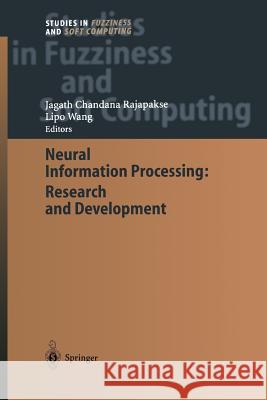Neural Information Processing: Research and Development » książka
Neural Information Processing: Research and Development
ISBN-13: 9783642535642 / Angielski / Miękka / 2012 / 478 str.
The field of neural information processing has two main objects: investigation into the functioning of biological neural networks and use of artificial neural networks to sol ve real world problems. Even before the reincarnation of the field of artificial neural networks in mid nineteen eighties, researchers have attempted to explore the engineering of human brain function. After the reincarnation, we have seen an emergence of a large number of neural network models and their successful applications to solve real world problems. This volume presents a collection of recent research and developments in the field of neural information processing. The book is organized in three Parts, i.e., (1) architectures, (2) learning algorithms, and (3) applications. Artificial neural networks consist of simple processing elements called neurons, which are connected by weights. The number of neurons and how they are connected to each other defines the architecture of a particular neural network. Part 1 of the book has nine chapters, demonstrating some of recent neural network architectures derived either to mimic aspects of human brain function or applied in some real world problems. Muresan provides a simple neural network model, based on spiking neurons that make use of shunting inhibition, which is capable of resisting small scale changes of stimulus. Hoshino and Zheng simulate a neural network of the auditory cortex to investigate neural basis for encoding and perception of vowel sounds.











